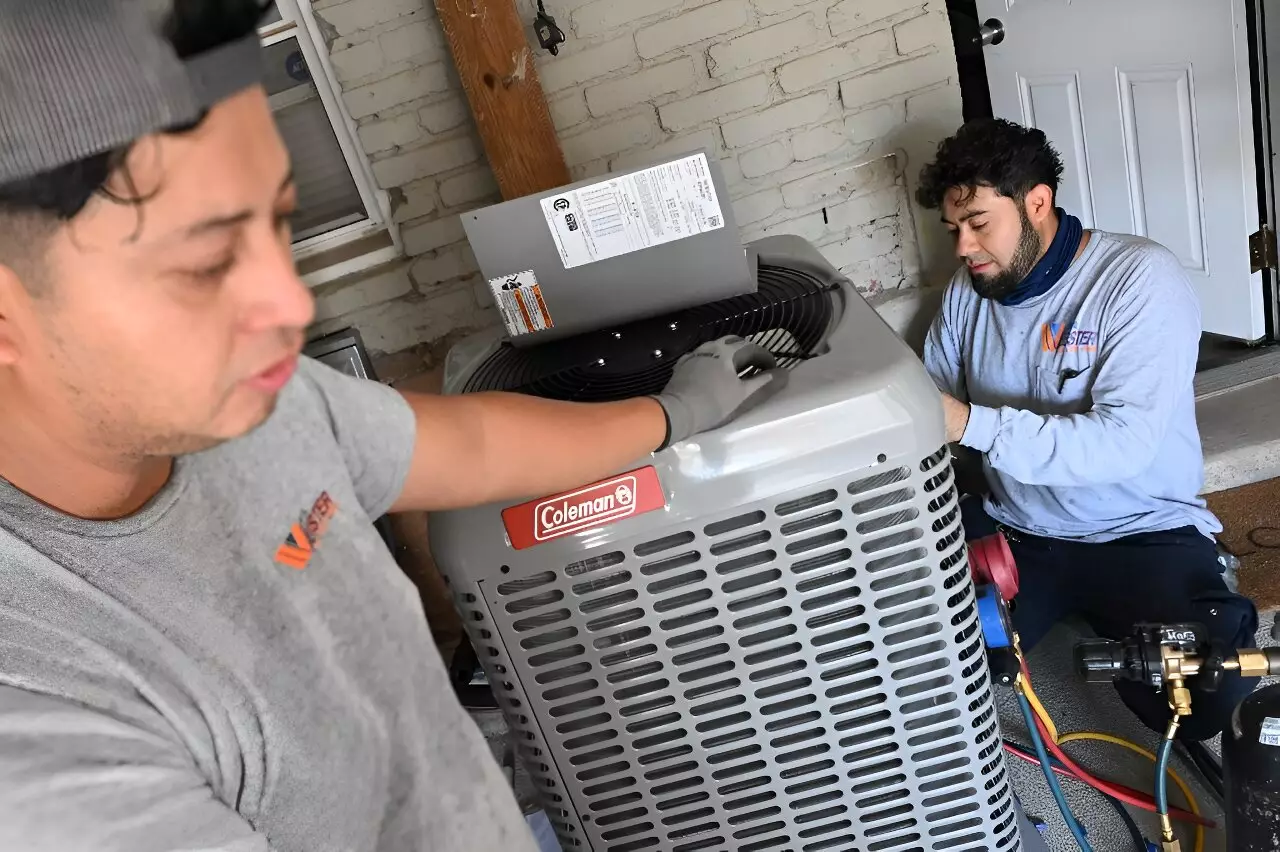In the quest for greater home electrification, heat pumps play a key role that is often overlooked when compared to more popular technologies like electric cars or solar panels. These energy-efficient systems have the potential to revolutionize the way we heat and cool our homes, significantly reducing our carbon footprint in the process. While heat pumps are common in Asia and Europe, their adoption in the United States has been relatively slow due to a lack of awareness and incentives.
Despite the clear environmental benefits of transitioning to heat pumps, many Americans, like Su Balasubramanian, remain unaware of this technology. Balasubramanian, a socially conscious individual, admitted to AFP that she had little knowledge about heat pumps before participating in a program that provided her with a full home electrification system. This lack of awareness is reflected in the statistics, with residences accounting for 18 percent of energy-related CO2 emissions in the United States in 2023, according to the Energy Information Administration (EIA).
Recognizing the need to accelerate the deployment of heat pumps, the White House has introduced a series of incentives and subsidies to encourage their installation. The Inflation Reduction Act, a landmark climate bill signed by President Joe Biden in 2022, offers tax credits of up to $2,000 for individuals installing heat pumps. Additionally, low- and middle-income households can benefit from rebates provided by the IRA, making the transition to heat pumps more accessible.
Individual states have also taken steps to incentivize the adoption of heat pumps, with programs like Washington’s Affordable Home Electrification offering comprehensive electrification packages at no cost to qualifying residents. For Balasubramanian, this program provided her with a range of electrification solutions, including a heat pump air source, heat pump hot water heater, and an induction stove, valued at $27,000. These incentives make the transition to heat pumps more financially feasible for individuals who may not have been able to afford the technology otherwise.
While the upfront costs of heat pumps may seem daunting, they are often more cost-effective in the long run, especially when compared to traditional gas-based heating systems. Advocates recommend electrifying one appliance at a time to make the transition more manageable and affordable for homeowners. According to a report published in the scientific journal Joule, heat pump air systems would be cost-effective in 59 percent of US households even without subsidies.
Rebecca Foster, CEO of the energy-focused nonprofit VEIC, believes that early adopters who are motivated by climate concerns are driving the trend towards electrification. However, she notes that there is still a significant awareness gap that needs to be addressed. Programs like the one Balasubramanian participated in often target seniors on fixed incomes, highlighting the need for more education and outreach to promote the benefits of heat pumps.
Full adoption of heat pump air systems in the United States could lead to a significant reduction in national greenhouse gas emissions, according to the April Joule report. Heat pumps have already outsold gas furnaces in recent years, signaling a shift towards more sustainable heating and cooling solutions. These systems work by transferring heat using electricity, rather than generating it, making them efficient and environmentally friendly options for residential heating and cooling.
States with high heat pump adoption rates, like South Carolina, benefit from factors such as cheap electricity, low gas infrastructure, and the need for air conditioning. However, there are still challenges to overcome, particularly in regions with lower penetration rates like Massachusetts. Deane Coady, a resident of Brookline, Massachusetts, made the decision to electrify her home for climate reasons, highlighting the importance of individual action in combating climate change.
In addition to incentives and awareness campaigns, the role of informed contractors is crucial in driving the adoption of heat pumps. Contractors who are knowledgeable about the technology and can effectively communicate its benefits play a key role in encouraging homeowners to make the switch. However, there is often resistance from traditional gas-based heating systems, highlighting the need for more training and awareness among contractors.
Overall, heat pumps have the potential to play a significant role in the fight against climate change by reducing greenhouse gas emissions and promoting greater home electrification. With the right incentives, education, and support, more Americans can make the transition to this energy-efficient technology, helping to create a more sustainable future for generations to come.


Leave a Reply